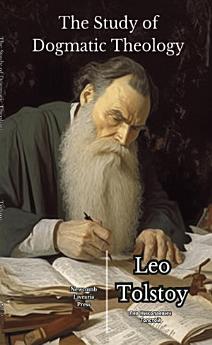The Study of Dogmatic Theology
About this ebook
Written in Yasnaya Polyana during 1882–1883 and printed abroad in 1884 to circumvent ecclesiastical censorship, this long essay approaches the authorised catechism of the Russian Orthodox Church as if it were a bundle of axioms to be tested for logical self-consistency, echoing Enlightenment polemics yet voiced from within Russian vernacular piety. Tolstoy moves article by article through the Nicene Creed, exposing internal contradictions, confronting the mystery of the Trinity with plain human reason, and arguing that clerical authority rests on coercion more than on spiritual insight; the prose ranges from judicial satire to pastoral pleading, revealing a writer determined to reclaim Christianity from metaphysical scholasticism. The tract sharpened the breach between Tolstoy and the Holy Synod that would culminate in his 1901 excommunication, and it supplied ideological tinder for later lay critics such as Bulgakov and Florovsky, while its merging of logical rhetoric with moral urgency signalled a new mode of religious critique inside Russian letters.
This critical reader's edition presents a modern translation of the original manuscript, crafted for the modern reader with clean, contemporary language and simplified sentence structures that clarify his complex Russian phrasing and specific antiquated references. Supplementary material enriches the text with autobiographical, historical, and linguistic context, including an afterword by the translator on Tolstoy’s personal history, impact, and intellectual legacy, an index of the philosophical concepts he employs—emphasizing Existentialism and influence by Schopenhauer—a comprehensive chronological list of his published writings, and a detailed timeline of his life, highlighting the personal relationships that shaped his philosophy.










